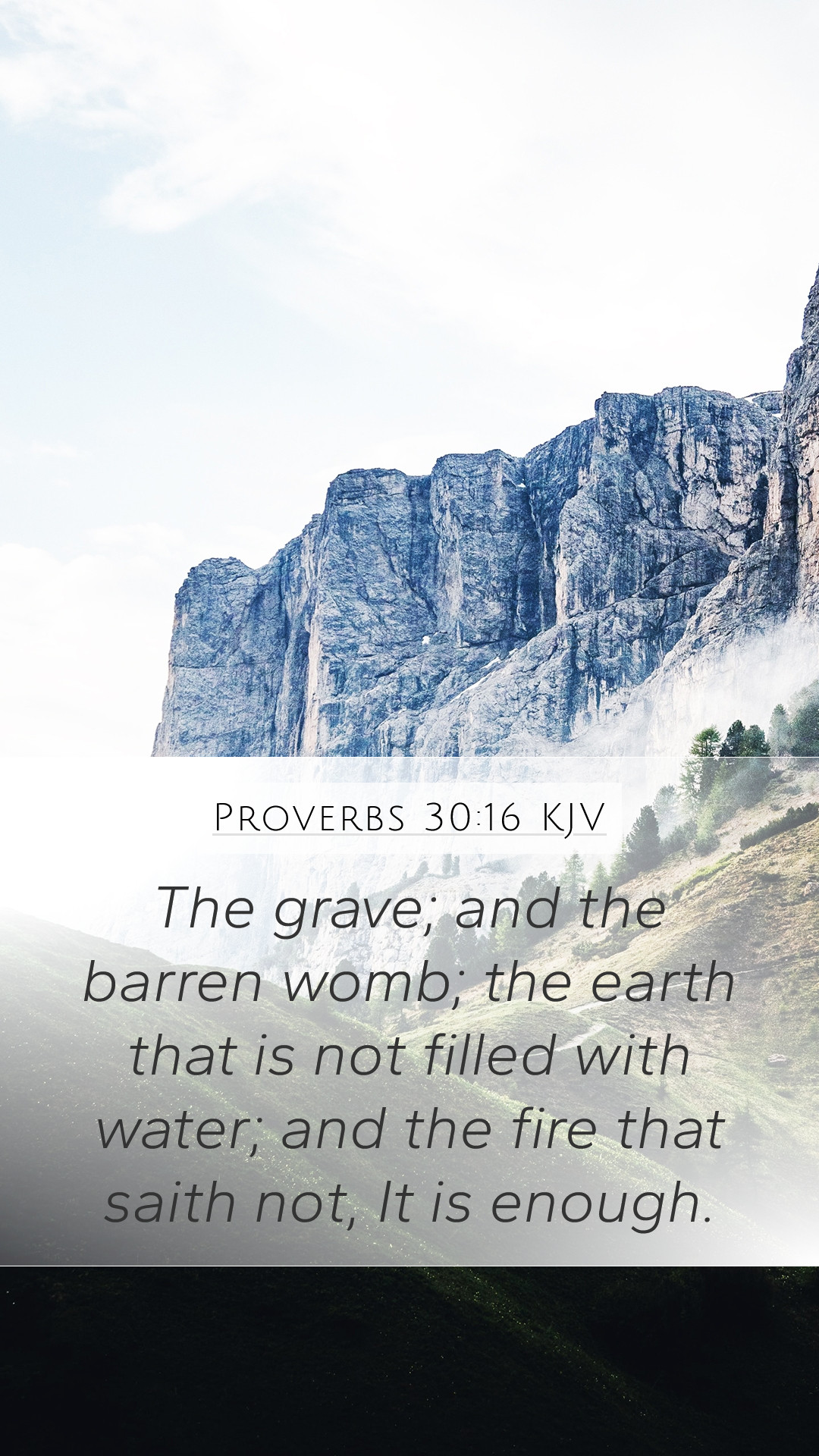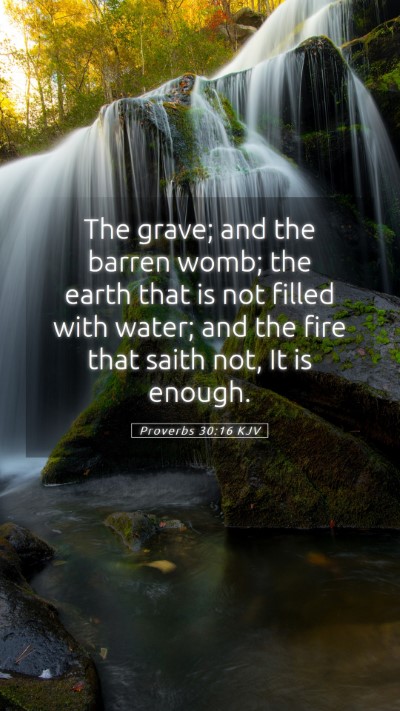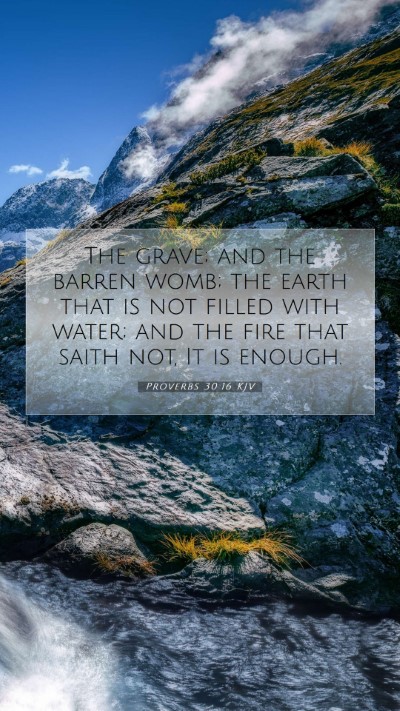Understanding Proverbs 30:16
Bible Verse: Proverbs 30:16 - "The grave; and the barren womb; the earth that is not filled with water; and the fire that saith not, It is enough."
Summary of the Verse Meaning
This verse from the book of Proverbs encapsulates a profound truth about insatiability, contrasting various elements that persistently seek fulfillment but never find it. The grave, barren womb, unwatered earth, and relentless fire are used symbolically to illustrate the inherent desires and lacks that exist within creation.
Insights from Public Domain Commentaries
- Matthew Henry:
Matthew Henry emphasizes the emptiness associated with these four elements. Each represents a state of ongoing need or desire. The grave illustrates the constant pursuit of life to fill its void, much like a barren womb that yearns for offspring but is unable to produce. This notion reflects a deeper spiritual truth about the human condition and the pursuit of satisfaction.
- Albert Barnes:
Albert Barnes highlights the insatiable nature of these symbols, particularly the grave and barren womb. He reflects on how none of these desires are ever fully satisfied, illustrating a human experience that consistently yearns for fulfillment which remains elusive. Barnes connects this search for completion to broader existential themes in human life.
- Adam Clarke:
Adam Clarke explains the earthly and spiritual implications of this verse. He notes the significance of the grave as a representation of death's sovereignty and the barren womb as a metaphor for unfulfilled potential. Clarke illustrates the yearning that exists both in nature and the human experience, suggesting that our pursuits often lead to unfulfilled aspirations unless aligned with divine purpose.
Detailed Exegesis of Proverbs 30:16
This verse serves as a poignant reminder of the limitations and desires inherent in creation. It presents four entities that are devoid of fulfillment:
- The Grave:
The grave is emblematic of death, eternally hungry for life. No matter how many lives it claims, it remains unsatisfied, thus reflecting the finality and insatiability of death.
- The Barren Womb:
In an ancient context, a barren womb represents lack, unfulfilled potential, and societal shame. The desire for children drives many, and when it is unmet, it represents an overwhelming void.
- The Earth That is Not Filled with Water:
This symbolizes a land parched and longing for rain, which is essential for life. It conveys the idea of unfulfilled needs in the natural world.
- The Fire That Saith Not, It Is Enough:
Fire illustrates consumption without satisfaction; it burns continually, always needing more fuel. This is reflective of human desires for wealth, pleasure, and more, revealing a deeper spiritual hunger.
Application to Daily Life
Understanding Proverbs 30:16 can have significant implications for our lives. It reminds us of our inherent needs and the folly of seeking ultimate satisfaction in earthly pursuits alone:
- Reflect on Insatiability:
Consider areas in life where you strive for fulfillment but never seem to be satisfied. This self-reflection can lead to meaningful change.
- Seek Spiritual Fulfillment:
Recognizing that ultimate satisfaction comes from a relationship with God can transform our pursuits and priorities.
- Community and Support:
Engaging in Bible study groups can help us understand and apply such wisdom collectively, fostering a supportive environment for spiritual growth.
Related Bible Cross References
- Ecclesiastes 1:8: "All things are full of labor; man cannot utter it: the eye is not satisfied with seeing, nor the ear filled with hearing."
- Isaiah 54:1: "Sing, O barren, thou that didst not bear; break forth into singing, and cry aloud, thou that didst not travail with child."
- James 4:2: "Ye lust, and have not: ye kill, and desire to have, and cannot obtain: ye fight and war, yet ye have not, because ye ask not."
Conclusion
Proverbs 30:16 serves as a profound reminder of our ongoing searches and unmet desires. By grasping its meaning, we are encouraged to seek fulfillment in spiritual matters rather than transient earthly desires. This understanding opens pathways for deeper Bible study insights and reflections on the human condition.


